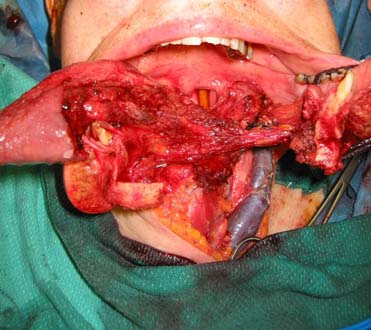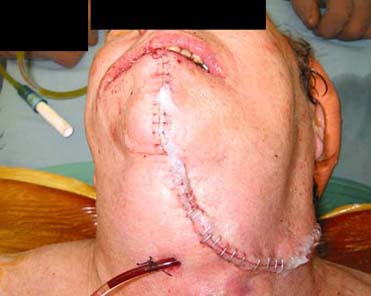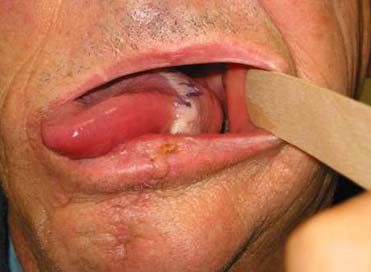
Treatment
Treatment of Head and Neck cancers involves a multidisciplinary approach involving otolaryngologists, radiation oncologists, and medical oncologists.
Surgical management in your patient may involve tumour resection with free flap reconstruction of the tongue and neck dissection to remove positive lymph nodes:




Management may also include radiation treatment and/or chemotherapy (chemotherapy is not frequently used in the treatment of oral cancers).
Choice of treatment modality will depend on many factors including the stage of the cancer, patient's general health, tolerance to the treatment, and evidence of cancer after surgical resection (positive margins).
The rate of recurrence in head and neck cancers is very high. Therefore, post-treatment surveillance for cancer recurrence is important. The 5-year disease free survival can be as high as 90% for early stage disease and as low as 15-30% with late stage disease and lymph node metastasis.
You're All Done!
In summary, there are numerous causes to neck masses. It is important to recognize the categories of neck masses (normal structure, congenital, inflammatory, and neoplastic) and have an approach to differentiating between the groups through a thorough history and physical. Squamous cell carcinoma is the most common cancer in the head and neck and early detection can greatly reduce mortality. Appropriate investigations and early and appropriate referral can potentially save a patient's life.